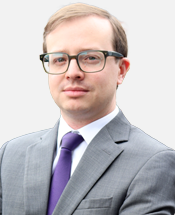In brief
On 18 January 2022, the Colombian Government enacted Law 2195 of 2022 (“Law“), which adopts measures for transparency and corruption prevention. These measures entail significant changes in relation to competition protection such as modifications to the fines applicable to individuals and companies and to the leniency program.
Changes in regards to competition protection matters
In regards of competition protection, the Law brings the following changes:
- Modification of applicable fines for companies
The Law modified the criteria for the calculation of the fines that the Superintendence of Industry and Commerce (SIC) may impose to companies who incur in antitrust violations. Article 25 of Law 1340 of 2009 set forth fines in favor of the SIC for up to 100,000 minimum legal monthly wages (equivalent in 2022 to COP 100,000,000,000 or approximately USD 24.7 million) or, if higher, up to 150% of the profit derived from the conduct. The Law provides new applicable criteria for fine caps.
For the determination of the sanction, the SIC will apply the value that results highest out of the following:
- The operating income of the company for the fiscal year immediately preceding the one in which the penalty is being imposed, with a maximum penalty cap of 20% of such value,
- The equity of the company for the fiscal year immediately preceding the one in which the penalty is being imposed, with a maximum penalty cap of 20% of such value,
- An amount set in minimum monthly wages, with a cap of 100,000,
- The value of the public contract in cases of conduct that affected or may affect public procurement processes, with a maximum penalty cap of 30% of such value.
Notwithstanding the foregoing, if the SIC can quantify the profits received by the offender from the conduct, it may impose as a penalty fines for up to 300% of such profit.
Additionally, the Law determined aggravating circumstances of the conduct that entail an increase of up to ten percent (10%) of the fine, without exceeding in any case the limits set forth in the Law, namely:
- Being the leader, instigator or any how promoter of the conduct,
- The continuation of the conduct after the investigation has initiated,
- The recidivism or existence of prior infringements to competition protection laws or non-compliance with commitments acquired or orders of the competition authority,
- The procedural conduct of the offender if tending to obstruct or delay the process, including the filing of inadmissible requests (however, the law does not define what an inadmissible request is).
Finally, the Law modified the criteria to be applied by the SIC for the determination of the above sanctions, as long as they are applicable to the specific case:
- The suitability of the conduct to affect the market or the damage caused to said market,
- The nature of the good or service involved,
- The degree of participation of the company involved,
- The duration of the conduct,
- The market share of the company in the market.
- Modification to the sanctioning regime for individuals
The Law amended Article 26 of Law 1340 of 2009, which determined the penalties for individuals, limiting the penalties provided therein for the facilitator (whether individual or legal entity) who collaborates, authorizes, promotes, encourages, executes or tolerates the violation of the competition protection regime by a market agent.
Even though the fine cap for the sanction remained the same, up to 2,000 legal monthly minimum wages (COP 2,000,000,000 or approximately USD 500,000), new aggravating circumstances were established for the conduct:
- Continuing to facilitate the infringing conduct after the investigation was initiated,
- Recidivism or existence of records for violations to competition protection laws, or non-compliance with commitments agreed with the SIC or failure to comply with its instructions,
- The procedural conduct of the offender tending to obstruct or delay the process, including the filing of inadmissible requests (however, the law does not define what an inadmissible request is).
Likewise, it modified the criteria that the SIC will take into account to determine the fine, establishing the following:
- The degree of involvement of the facilitator in the conduct of the market agent,
- The recidivism or existence of prior infringements to competition protection laws or non-compliance with commitments acquired or orders of the competition authority,
- The value of the facilitator’s assets.
- Modification to the leniency program
The Law adds provisions to Article 14 of Law 1340 of 2009 which regulates the leniency program, as explained below:
- The identity of the applicants and the evidence provided by them will be kept confidential until the final decision is in force.
- The process of negotiation of the benefits with applicants will be confidential.
Whoever obtains the full exoneration or partial reduction of the fine will only be liable in proportion to their participation in the compensation of damages caused to third parties and not jointly and severally liable with the other investigated parties.




